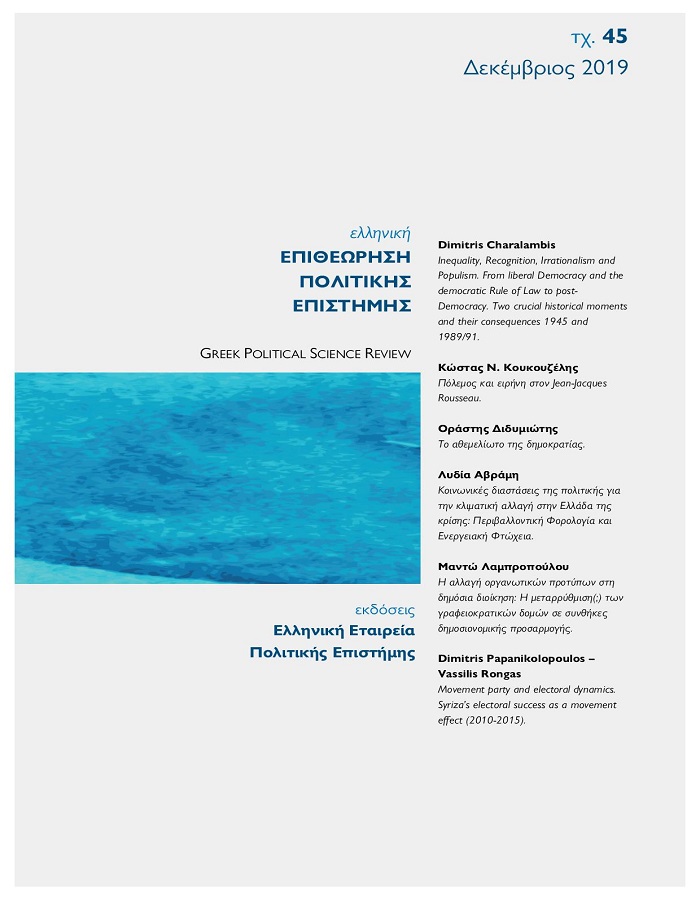Inequality, Recognition, Irrationalism and Populism. From liberal Democracy and the democratic Rule of Law to post-Democracy. Two crucial historical moments and their consequences: 1945 and 1989/91

Abstract
After the inequality turn of the late 1970s and mainly after the collapse of the Soviet Union deregulation, globalization, hyperconcentration of wealth and private power, oligopolies, monopolies and the dominant position of the financial capital are the consequences of paradigm change from the post 1945 Keynesian consensus to the neoliberal dismantling of the social contract. The end of the heavy industry era, the relocation of production to China and the digital revolution and industrialization 4.0 undermine the classical negotiation between capital and labor leading again to marginalization of social recognition and to oligarchy and transforms the classes dangereuses of the industrial era to classes irrelevantes. The erosion of Democracy and the rise of irrationalism as the systemic rationalization of inequality are the consequences in the declining Western world parallel to the aggressive authoritarian capitalism in China. It seems that the era of the social state between 1945 and the end of the 1970s and mainly after 1989/91 was only a historical intermezzo and that exorbitant inequality reappears as the constituent element of capitalism.
Article Details
- How to Cite
-
Charalambis, D. (2020). Inequality, Recognition, Irrationalism and Populism. From liberal Democracy and the democratic Rule of Law to post-Democracy. Two crucial historical moments and their consequences: 1945 and 1989/91. Greek Political Science Review, 45(1), 7–58. https://doi.org/10.12681/hpsa.22312
- Issue
- Vol. 45 (2019)
- Section
- Articles

This work is licensed under a Creative Commons Attribution-NonCommercial-ShareAlike 4.0 International License.
Authors who publish with this journal agree to the following terms:
Authors retain copyright and grant the journal right of first publication with the work simultaneously licensed under a Creative Commons Attribution licence that allows others to share the work with an acknowledgement of the work's authorship and initial publication in this journal.
Authors are able to enter into separate, additional contractual arrangements for the non-exclusive distribution of the journal's published version of the work (e.g. post it to an institutional repository or publish it in a book), with an acknowledgement of its initial publication in this journal.
Authors are permitted and encouraged to post their work online (preferably in institutional repositories or on their website) prior to and during the submission process, as it can lead to productive exchanges, as well as earlier and greater citation of published work (See The Effect of Open Access).


